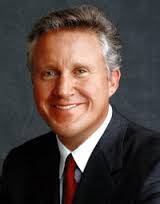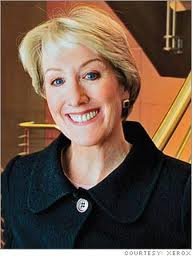Autumn is the time of year when many newspapers and journals produce their university league tables. For example, September saw the publication of the Financial Times (FT) Business Education Supplement, and in the UK the Sunday Times Good University Guide, offering different takes on where to study. These two are targeted at very different audiences. The Sunday Times Guide is aimed at parents as much as students, recognising that parents have a significant stake in the decision making process that leads to undergraduate study choices, whilst the FT Supplement is written for mainly for business people intent on furthering their careers, by making a shrewd investment in a Masters level qualification.
Category Archives: China
How do students choose where to study? (Philip Warwick)
Filed under Business, Business Schools, Careers, China, Great Britain, Higher Education, India, International studies, Travel
STUDY ABROAD : Peng Chen talks about coming to Grenoble from Beijing (Beida) University
Peng Chen, of Peking University in China, had options to study abroad in the United States, Singapore, and all around Europe, but he chose Grenoble, France for its diverse cultural factors. Peng had always wanted to see Europe, experience the unique teaching style that came along with the continent, and live like a typical Frenchman. Needless to say, when he first arrived in France, Peng was pleasantly surprised with how accurate his expectations for France were.
Filed under Business Schools, China, Europe, France, Higher Education, Study Abroad, Travel
BOOK REVIEW: “When China Rules the World, the end of the western world and the birth of a new global order (second edition)” by Martin Jacques (2012)
 Review by Philip Warwick
Review by Philip Warwick
Martin Jacques, who holds academic posts at the London School of Economics and Tsinghua Universtiy in Beijing, as well as being a former journalist and founder of the left leaning Demos think-tank has produced a fascinating book about how the world’s political and economic power has been shifting in the early twenty-first century and what is likely to happen next.
Jacques finishes his book with an unexpected flourish (which I am just about to ruin for you) in which he makes a good case for China’s predicted world dominance to become a reality sooner rather than later. Through much of the book he refers to a Goldman Sachs prediction that China’s economy will overtake the United States (US) in 2025. The reader is left to assume that this is the date on which the new world order will be finalised. However, in this final section he points to the rapid implosion of all things American, suggesting that the impact of the 2007/2008 financial crisis on the US (and the Europe Union), together with US foreign policy which has had a myopic focus on the middle-east for the last decade, has left the field wide open for China. He names 2008 as the year that marked the end, or at least the beginning of the end, of a period of US world dominance that has lasted since 1945 and has been unchallenged since the collapse of the Soviet Block in 1989-1991.
Filed under Asia, Book Review, China, Economics, Guest Authors, Leadership, Politics, Strategy, USA
BOOK REVIEW: “How Countries Compete: Strategy, Structure, and Government in the Global Economy” by Richard Vietor (2007)
 How Countries Compete is a political and economic strategic analysis of 11 different countries around the world. The book is divided into 12 new chapters, which deal with one country per chapter. Japan is dealt with twice, looking at it from a historical perspective at the beginning of the book, and then looking more towards the future and there after the pre 1990 crisis. Richard Vietor uses the word “compete” in the sense that countries try to compete for market share in the world economy and gain foreign investment and export their sales in business. Governments can help in this policy, either by macroeconomic policies that encourage investment and greater economic activity, or by things like increasing human resource competencies through education. Some countries have very active and direct policies. In China, for example, technology transfer and know-how has been encouraged through the use of FDI. In Singapore, workers are required to save as much as 50% of their gross income for their retirement plan.
How Countries Compete is a political and economic strategic analysis of 11 different countries around the world. The book is divided into 12 new chapters, which deal with one country per chapter. Japan is dealt with twice, looking at it from a historical perspective at the beginning of the book, and then looking more towards the future and there after the pre 1990 crisis. Richard Vietor uses the word “compete” in the sense that countries try to compete for market share in the world economy and gain foreign investment and export their sales in business. Governments can help in this policy, either by macroeconomic policies that encourage investment and greater economic activity, or by things like increasing human resource competencies through education. Some countries have very active and direct policies. In China, for example, technology transfer and know-how has been encouraged through the use of FDI. In Singapore, workers are required to save as much as 50% of their gross income for their retirement plan.
An Interview with Tom Enders, CEO of EADS (Airbus) Part 2: Strategy and execution in the aircraft industry)
Tom Enders is the CEO of EADS, the parent company of Airbus, the giant commercial aircraft company. EADS is a pan European corporation that employs over 140 000 people and generated revenues of nearly €57 billion last year. In the second part of this three-fold interview, Tom Enders talks about strategic execution at Airbus and EADS, how politics can influence strategic plans and the relationship between Airbus and Boeing.
Filed under Airlines, Asia, Business, China, Corporate Behavior, Entrepreneurship, Management, Paris Air Show, Strategy, Technology
An Interview with Tom Enders, CEO of EADS (Airbus) Part 1: The challenges of running a large international corporation
In May, I had the opportunity to interview Tom Enders, CEO of EADS. The company is often better known for its Airbus division. EADS is a pan-European corporation that employs over 140 000 people and generated revenues of nearly €57 billion last year. It is a fascinating company for many reasons; its governance with diverse political interests, the strategic importance of the aeronautical industry and the very international structure of the organization. I am very grateful to Tom Enders and his team at EADS for a very open discussion I had.
In this three part interview, German-born Enders talks about the day to day challenges of running such a complex company, how strategy can be hampered by politics and gives some advice to young graduates beginning their careers. Continue reading
Filed under Airlines, Asia, Business, Business Schools, China, Corporate strategy, France, Leadership, Management, Paris Air Show, Strategy
EFMD Annual Conference 2013: “Efficiency and Creativity: the Impact of Management Education upon Business and Economy in Asia” by Dong-Sung Cho
 Dong-Sung Cho, Professor of Strategy, International Business, Management Design, and Sustainability Management at Seoul National University, gave a lecture at the EFMD 2013 Conference titled “Efficiency and Creativity: the Impact of Management Education upon Business and Economy in Asia.” This lecture discussed themes of management education, particularly through creative channels, and their influence upon the economies in the Asian markets, especially South Korea and China.
Dong-Sung Cho, Professor of Strategy, International Business, Management Design, and Sustainability Management at Seoul National University, gave a lecture at the EFMD 2013 Conference titled “Efficiency and Creativity: the Impact of Management Education upon Business and Economy in Asia.” This lecture discussed themes of management education, particularly through creative channels, and their influence upon the economies in the Asian markets, especially South Korea and China.
Filed under Asia, Business, Business Schools, China, Education, Higher Education, Management, MBA, Research, Seoul, South Korea, Strategy
BOOK REVIEW: “The Road to Academic Excellence” by Philip G. Altbach & Jamil Salmi (2012)
 The financial crisis has led to a whole range of institutions and ideas being brought into question. One of them is the research university. In a 2011 Global Focus article, Kai Peters and Howard Thomas argued that the current model of universities is unsustainable. Effectively, universities spend too much to doing things that are not resource producing. At the recent AACSB ICAM Annual Conference 2013, Ted Synder, Dean at Yale University, reiterated this view. Western universities are effectively pricing themselves out of the market, he claimed. This book is a counter argument to such claims. Continue reading
The financial crisis has led to a whole range of institutions and ideas being brought into question. One of them is the research university. In a 2011 Global Focus article, Kai Peters and Howard Thomas argued that the current model of universities is unsustainable. Effectively, universities spend too much to doing things that are not resource producing. At the recent AACSB ICAM Annual Conference 2013, Ted Synder, Dean at Yale University, reiterated this view. Western universities are effectively pricing themselves out of the market, he claimed. This book is a counter argument to such claims. Continue reading
Filed under Asia, Book Review, Business Schools, China, Higher Education, India, Rankings, Research, South Korea, USA
Global Power Struggles
Two news stories grabbed my attention over the last few days. In my opinion both are indicative of a where we are with globalisation and the shifting powerbases of the global economy. First, Apple apologised for the perception that they showed arrogance to their Chinese customers. Secondly, The Indian Government refused to extend the patent of a cancer drug made by Swiss Pharmaceutical giant, Novartis.
Filed under Asia, Business, China, Economics, Guest Authors, India, Management
STUDY ABROAD / INTERNATIONAL EXPERIENCE : City University of Hong Kong
Pascal Masapollo, a graduate management student from Grenoble EM, talks about his experience at City University of Hong Kong.
Hong Kong is a city where all your dream become reality ! It is not just about buildings and noodles but also about amazing landscapes, people, and cultural experiences ! The City University of Hong Kong offers amazing facilities (even a swimming pool!). Everything is made so that you can enjoy your time like never before… So you’d better not forget your camera !!
Text and photo by Pascal Masapollo





















